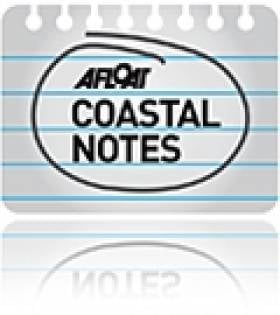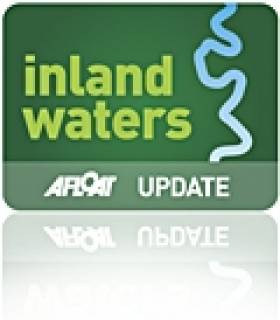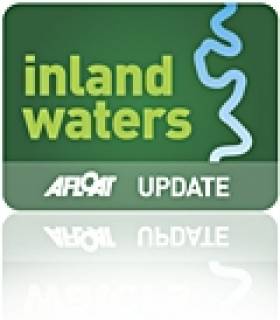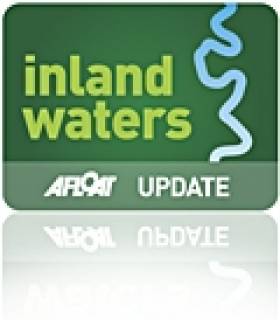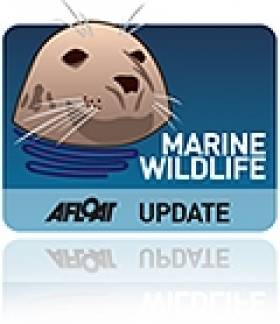Displaying items by tag: Jimmy Deenihan
#Lusitania - The owner of the Lusitania may get his wish for a return dive to the wreck of the ill-fated passenger liner after the Minister for Heritage endorsed plans for a fresh investigation into its sinking.
The Irish Times reports that Minister Jimmy Deenihan has "agreed to a broad set of exploration objectives" with Gregg Bemis, the American millionaire businessman who has had had a financial interest in the wreck since 1968, and sole ownership since 1982.
As previously reported on Afloat.ie, Bemis had been seeking permission from the Government since last September after disputing the findings of a documentary made during an expedition to the wreck in the summer of 2011.
The cruise liner - a rival of the Titanic in its day - was hit by a torpedo from a German U-boat off the Old Head of Kinsale on 7 May 1915, during the First World War, sinking in just 20 minutes and taking 1,198 lives.
However, there have long been accounts of a second explosion on the sinking vessel before it was submerged - leading some to believe that it was carrying Allied munitions in its cargo.
Bemis staged his previous expedition in a bid to discover once and for all what really happened to the Lusitania. But last year he said that the National Geographic documentary team behind 'Dark Secrets of the Lusitania' used "insufficient data" to conclude that the second explosion was from a boiler in the bowels of the ship.
The businessman's ambitions had also been thwarted by a long-running dispute with Leinster House over the State's heritage rights to the wreck site and the effect of exploration on its condition.
Minister Deenihan is reviewing a new licence application that would involve numerous dives to the wreck over the next three years, including the centenary year of the Lusitania's demise in 2015.
The Irish Times has more on the story HERE.
#INLAND WATERWAYS - The "main thrust" of waterways refurbishment is still focused on the re-opening of the Ulster Canal from Lough Erne to Clones, according to the Minister for Arts, Heritage and the Gaeltacht.
Responding in writing to a Dáil question from Kildare South TD Jack Wall regarding plans for the development of Ireland's canal system under Waterways Ireland, Minister Jimmy Deenihan confirmed that the Ulster Canal Project is still top priority - despite the Government's U-turn on its commitment to cover the full capital costs of the scheme, as previously reported on Afloat.ie.
The minister commented: "Since its formation in 1999, Waterways Ireland has continued to upgrade the facilities on the canals through the capital allocations under the National Development Plans. The canals system has benefited extremely well during that time, particularly with the number of additional mooring and landing spaces that have been made available. The provision of further mooring space will be dependent on available finance and priorities over the coming years."
Minister Deenihan said his department's capital allocation for Waterways Ireland is €4.5 million which "will facilitate continued investment in the development and restoration of the inland waterways".
He added that Waterways Ireland is also "undertaking feasibility studies on the Kilbeggan Branch of the Grand Canal and on the Longford Branch of the Royal Canal" which are due to be completed by the end of 2013.
With reference to staffing levels among lock keepers, the minister said: "I am informed by Waterways Ireland that there are 20 lock keepers employed at present on the Grand Canal and Barrow Navigation. A number of staff have retired recently and decisions on their replacement will be taken having regard to the business needs of the organisation.
"I understand that Waterways Ireland is not planning to recruit lock keepers at this time. Any posts filled will be either by internal transfer or external recruitment, depending on the particular circumstances."
The minister also commented on waterways traffic, noting that boat traffic numbers "have remained fairly constant over 2009 and 2010" and that in 2011 "numbers increased by 30% following the re-opening of the Royal Canal".
In addition, he emphasised "the fact that access was available to the Tall Ships event in Waterford".
Minister Has Little to Report on Ulster Canal Project
#INLAND WATERWAYS - Three months on from Minister Jimmy Deenihan's statement on the Ulster Canal regeneration project, and there is little to update on its progress.
As reported on Afloat.ie last December, the Minister for Arts, Heritage and the Gaeltacht replied to a written question from Cork East Sinn Féin deputy Sandra McLennan that the project is "progressing'"despite a U-turn on Government funding, and confirmed that Waterways Ireland would solely fund the scheme from its annual allocations.
However, the minister's latest response - to a question from Cavan-Monaghan Sinn Féin TD Caoimhghín Ó Caoláin requesting an update on the project's progress - is almost identical to his previous statement.
One small difference is an acknowledgement that Cavan County Council has granted planning permission for the project, which involves restoration of the canal between Clones in Co Monaghan and Upper Lough Erne.
Minister Deenihan also stated that his department is "finalising terms of reference" for the proposed inter-agency group that would examine ways to further the project, but gave no timeframe as to when this group would be established.
Ulster Canal Project 'Progressing' Despite U-Turn on Govt Funds
#INLAND WATERWAYS - The Ulster Canal restoration project will be funded by Waterways Ireland alone, at least for the time being, according to the Minister for Arts, Heritage and the Gaeltacht.
Responding in the Dáil to a written question from Cork East Sinn Féin deputy Sandra McLennan, Minister Jimmy Deenihan said that while the previous Government had committed in 2007 to covering the full capital costs of the project, estimated at €35 million, such was no longer viable in the current climate.
"Government accounting procedures do not provide, in that sense, for the ’ring-fencing’ of funds for projects of this nature," said the minister, who added that he was "advised that it was always the intention that the Ulster Canal project would be funded from the Waterways Ireland annual allocations" as well as "projected income from the commercialisation of certain Waterways Ireland assets", though he admitted this had been affected negatively by the economic downturn.
However, Minister Deenihan noted that the project - involving restoration of the canal between Clones in Co Monaghan and Upper Lough Erne - is "progressing incrementally" and that a planning application submitted in October was a "significant milestone".
He also confirmed that he intends "to continue to explore all possible options that may assist in the advancement of this project", which may involve an inter-agency group between the relevant county councils and interested bodies to examine ways of advancing the scheme.
Spanish Armada Wreck Discovered Off Donegal
RTÉ News reports that underwater archaeologists may have discovered a sunken ship from the Spanish Armada off the Donegal coast.
State funding has already been announced for an excavation of the wreck, which lies in shallow water at Rutland, near Burtonport.
Evidence suggests that the vessel is from the 16th century and was part of the 1588 expedition.
Minister for Arts, Heritage and the Gaeltacht Jimmy Deenihan described the discovery as "a major find of significance" to the world's historical and archaeological communities, adding that it could give greater "insight into life on board and the reality of the military and naval resources available to the Armada campaign".
RTÉ News has more on the story, including images and video, HERE.
Ireland's First Biodiversity Audit Launched
Ireland's first ever biodiversity audit has revealed that our mountains, woodlands and waterways are home to more than 31,000 different species of plants and animals. For all the latest news on Irish marine animals click here.
Ireland's waters boast more than 560 different species of marine fish, most of which are perch-like or ray finned fish, while 29 different fish species inhabit Irish inland waterways.
The state of knowledge report also found that popular species of plants, birds or mammals make up just one in ten of all species in Ireland.
Dr Liam Lysaght of the National Biodiversity Data Centre told the Irish Independent that the report "will for the first time allow us to accurately describe Ireland's biological resources and identify the knowledge gaps that exist".
http://www.independent.ie/national-news/irelands-wildlife-audit-revealed-2591440.htmlScientists joined with State bodies, NGOs and third-level institutions last August to conduct the survey of Ireland's plantlife and wildlife.
Minister for Arts, Heritage and Gaeltacht Affairs Jimmy Deenihan said that the protection of Ireland's biodiversity "is not a luxury".
The report is available online at biodiversity.biodiversityireland.ie
Ireland's first ever biodiversity audit has revealed that the country's mountains, woodlands and waterways are home to more than 31,000 different species of plants and animals.
The survey reveals that Ireland's waters boast more than 560 different species of marine fish, most of which are perch-like or ray finned fish, while 29 different fish species inhabit Irish inland waterways.
The state of knowledge report also found that popular species of plants, birds or mammals make up just one in ten of all species in Ireland.
Dr Liam Lysaght of the National Biodiversity Data Centre told the Irish Independent that the report "will for the first time allow us to accurately describe Ireland's biological resources and identify the knowledge gaps that exist".
Scientists joined with State bodies, NGOs and third-level institutions last August to conduct the survey of Ireland's plantlife and wildlife.
Minister for Arts, Heritage and Gaeltacht Affairs Jimmy Deenihan said that the protection of Ireland's biodiversity "is not a luxury".
The report is available online at biodiversity.biodiversityireland.ie



























